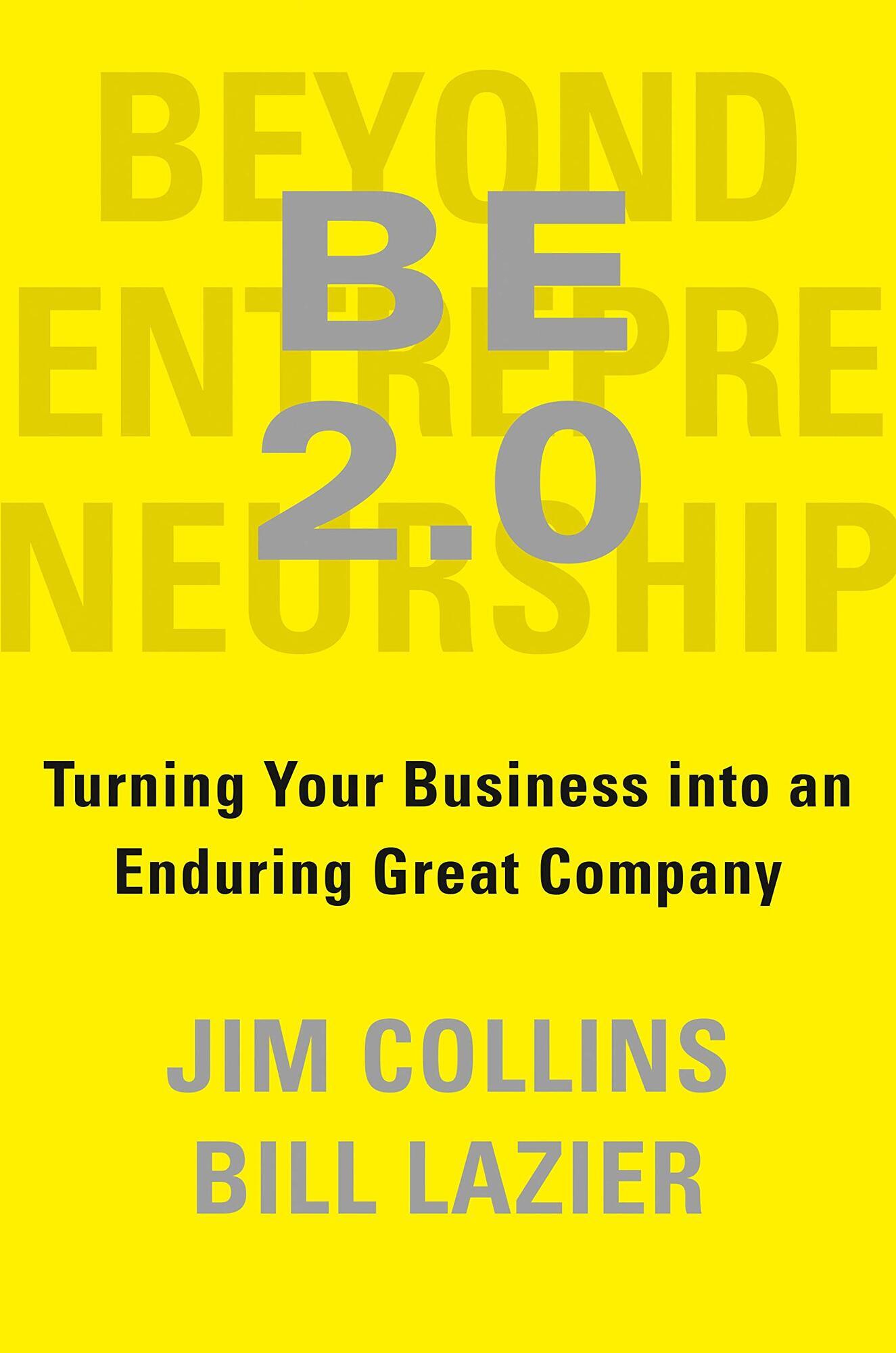 This is the fourth of a series of five blog posts based on Jim Collins & Bill Lazier, BE 2.0: Turning Your Business into an Enduring Great Company (New York, NY: Portfolio / Penguin, 2020). Bill Lazier and Jim Collins co-authored Beyond Entrepreneurship in 1992. Collins has released an expanded second version under a slightly modified name.
This is the fourth of a series of five blog posts based on Jim Collins & Bill Lazier, BE 2.0: Turning Your Business into an Enduring Great Company (New York, NY: Portfolio / Penguin, 2020). Bill Lazier and Jim Collins co-authored Beyond Entrepreneurship in 1992. Collins has released an expanded second version under a slightly modified name.
A book about entrepreneurship must, of course, have a focus on innovation, which is the heart of the entrepreneurial process. As Peter Drucker stated in his landmark Innovation and Entrepreneurship, innovation is the sine qua non on entrepreneurship.
Collins is worth reading carefully even when it is much-analyzed territory (as long as he sticks to his knitting). He is not only a leading management thinker generally, but he is also one of the most insightful thinkers on entrepreneurship. In that sense, he is “Peter Drucker 2.0”—not a bad comparison considering that Drucker was considered the world’s leading management thinker in the day.
Collins includes a long and insightful chapter on innovation in his book. He notes that “To be an enduring, great company, we believe it must have the ability to innovate continually—to have a constant flow of new ideas, some of which are fully implemented.” [217]
He explains that there are six basic elements to be an innovative company:
- Receptivity to ideas from everywhere
- “being” the customer
- Experimentation and mistakes
- People being creative
- Autonomy and decentralization
- Rewards [218]
He shares that “…research on creativity shows that significant creative contributors have wide interests, a breadth of perspective, and a need for novelty and diversity. Innovation often comes from seeing the relationship between unconnected ideas and melding them together.” [222]
An interesting observation: “the primary challenge you face is not in increasing creativity per se, but in making your company receptive to the vast amounts of creativity that already exist.” [223] In other words, a change of mindset is required.
Collings makes an interesting comment about the nature of people: “All people have the capacity to be creative. There is no such thing as an inherently uncreative person; creativity is a capability that resides inside each and every one of us.” [241] It almost sounds like people are a reflection of the fact that they themselves are created by a Creator.
One way to maintain creativity in an organization is decentralization. Collins explains that “The idea is simple: by continually breaking the enterprise into small semi-autonomous chunks, you can become larger overall, yet retain many of the advantages of being small. People within each small sub-unit can then have a sense of personal ownership, responsibility, autonomy, and accountability that simulates being an entrepreneurial business within the overall corporate umbrella.” [250]
Creativity can be enhanced and stoked. Collins offers eight management techniques for stimulating creativity [257]
- Encourage; don’t nitpick
- Be not judgmental
- Help shy people
- Stimulate curiosity
- Create necessity
- Allow time away from the fray
- Catalyze group problem solving
- Require fun
He notes that creativity will emerge from a focused process and that it requires faith: “To keep a company innovative requires this leap of faith—faith that all people have the capacity to be creative, faith that there are lots of good ideas, faith in the woodwork factor, faith in experimentation, and faith in giving people the freedom to act. Man is by nature an inventor, discoverer, and explorer; we’re endowed with a powerful urge to create, and a commensurate ability to do so….Indeed, not only does innovation keep a company healthy and prosperous, it satisfies the basic human drive to create and, at the same time, moves humankind forward.” 262-3].
A lot of faith is required from the spiritual but not religious side of people. His sweeping generalizations in areas beyond his expertise diminish his halo, but not his overall credibility. His comments on the nature of man and endowed urges beget myriad questions rather than answer them. Collins is best in his lane. On entrepreneurship and business, as noted above, he provides great insights.

